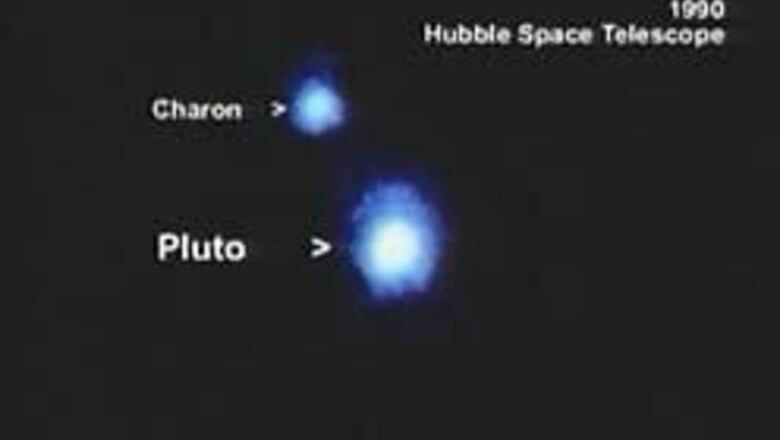
views
Washington: Hundreds of US scientists have challenged a recent decision by an International astronomy group to strip Pluto off its planetary status with a petition rejecting its definition of what constitutes a planet.
The astronomical insurrection shows that debate is likely to continue over the status of the icy rock at the edge of the solar system that was considered the ninth planet until a vote last week by the International Astronomical Union (IAU).
Petition organiser Alan Stern said the union's decision was driven by politics, not science.
"The IAU can say the sky is green all day long and that doesn't make it so," said Stern, who is a planetary scientist at the Southwest Research Institute in Boulder, Colorado.
"The IAU created a definition which is technically flawed, linguistically flawed and scientifically embarrassing," Stern said.
The 300 astronomers and planetary scientists who signed the petition said they would not use the IAU's definition.
Dissenters are organising a conference next year to hash out a better definition, Stern said.
Pluto has been considered the ninth planet since it was discovered in 1930.
But the 2003 discovery of a nearby, larger body known as Xena prompted a reconsideration.
After rejecting a proposal to name Xena and two other bodies as planets, the IAU decided to downgrade Pluto and create a first-ever definition of what constitutes a planet.
According to the IAU, a body can be considered a planet if it orbits the Sun, is large enough to be made round by its own gravity, and has cleared the area around it of smaller cosmic objects.
That definition would exclude Earth and other planets that are pelted with asteroids, Stern said.
Others who did not sign the petition also criticized the IAU's decision.
"I'd like to see philosophers, writers and policymakers weigh in on this before we start rewriting textbooks," said Mark Bullock, also of the Southwest Research Institute.
One scientist involved in crafting the IAU's definition said other points of view were inevitable.
"There are many viable definitions for the word 'planet'," said a planetary scientist at the Massachusetts Institute of Technology, Richard Binzel.




















Comments
0 comment